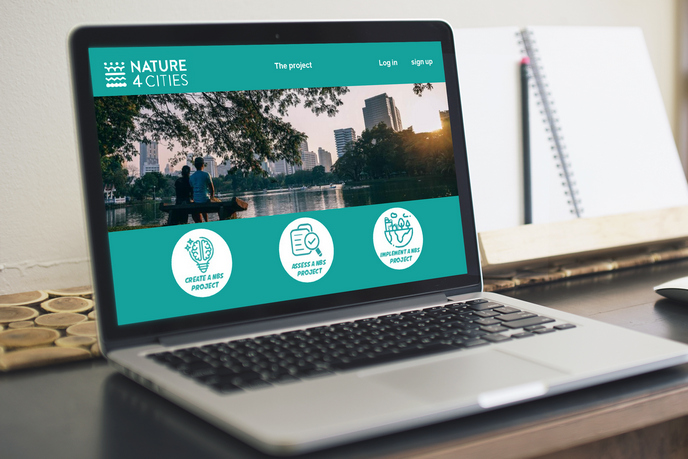Solutions, methods and tools empower people in making cities greener
There’s a pressing need to bring nature back into innovation, planning and implementation-driven thinking. “This new technical and governance approach implies collaborative models driven by citizens, researchers, policymakers and industry leaders who rely on participative processes and sharing of best practices,” says Stéphanie Decker, project manager of the EU-funded Nature4Cities project. “For this, cities need practical support in fostering their projects to renature cities.” There are many barriers to widespread deployment of NBS related to both lack of knowledge about them and the use of conventional urban planning tools and processes. “Most NBS can’t be thought of as simple replacements for established solutions, they require an original whole governance approach,” explains Decker. “Integrating NBS into urban planning requires a change of mindset by multiple stakeholders, new governance, business and financing models, and new integrated assessment capabilities.”
One-stop shop for spreading NBS knowledge
Project partners began with detailed mapping of urban challenges and relevant NBS to face them. On the basis of this output, they are developing complementary and interactive tools to raise awareness about NBS and foster novel collaborative models for their uptake. The Nature4Cities team plans to bring all these resources under a one-stop shop by creating a nature4cities-platform.eu/ (web-based knowledge and decision support platform). It will contain knowledge repositories like databases and guidelines, tools to assess benefits, co-benefits and costs of NBS projects, and other tools to manage stakeholder participation processes. The N4C platform tools will be demonstrated in Alcalá de Henares (Spain), Milan (Italy), Szeged (Hungary) and Ankara (Turkey).
Solutions for NBS impact assessment, valorisation and follow-up
Several tools have already been delivered and integrated into the N4C platform. The NBS catalogue explorer is an app to visualise the connection between NBS and urban challenges, and to gain knowledge by accessing the NBS database. The preselection tool assists in selecting the most appropriate NBS together with the local cultural, social, economic and regulatory conditions and requirements for successful implementation. A step-by-step guide is a practical tool for practitioners who plan, implement, monitor and maintain inclusive and participatory NBS interventions. It presents citizen and stakeholder engagement strategies and solutions for implementing NBS. The researchers evaluated and assessed the (factors of social acceptance for NBS implementation. Urban planners and decision-makers can assess and manage the social acceptability of any type of NBS by community, public or market. The valuation scale is an operational tool to assess NBS benefits on environmental quality of life. Test versions of most tools are currently in development ahead of user-friendliness and functionality testing. “Nature4Cities will be very useful for urban planners, municipalities, researchers, policymakers, industry leaders, infrastructure enterprises, technological SMEs and citizens – regardless of their expertise,” concludes Decker. “The N4C platform represents a unique opportunity to support value chain companies involved in renaturing cities by providing tools and methods to define NBS scenarios and integrate them into urban planning, assess environmental and economic life-cycle impacts, measure corresponding environmental and financial risks, and disseminate NBS benefits.”
Keywords
Nature4Cities, NBS, urban, cities, nature, urban planning, nature-based solutions, knowledge and decision support platform







